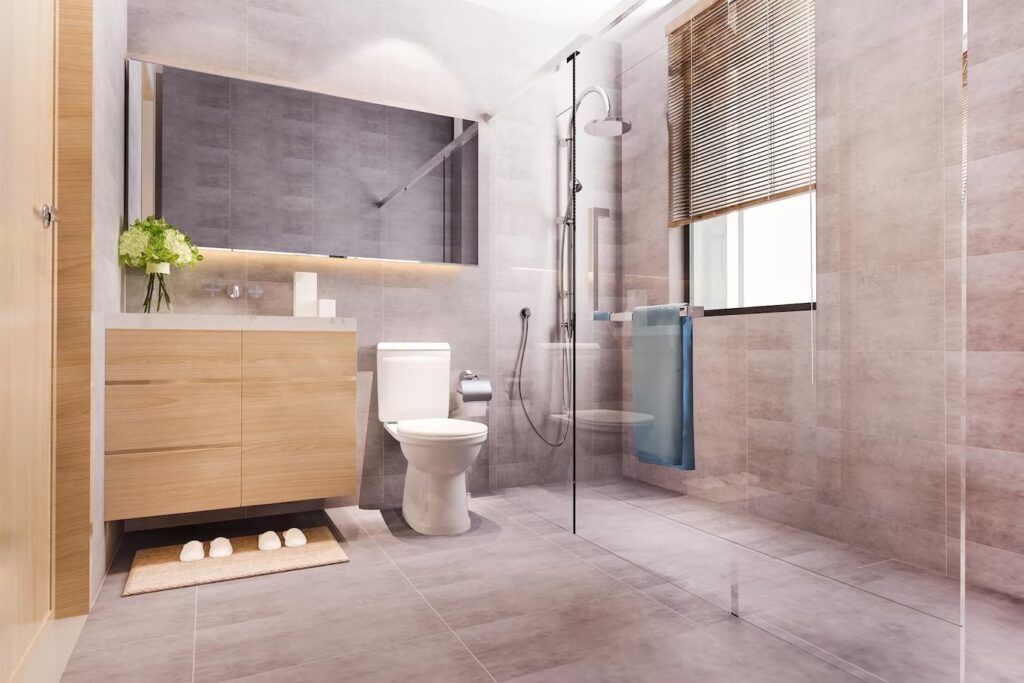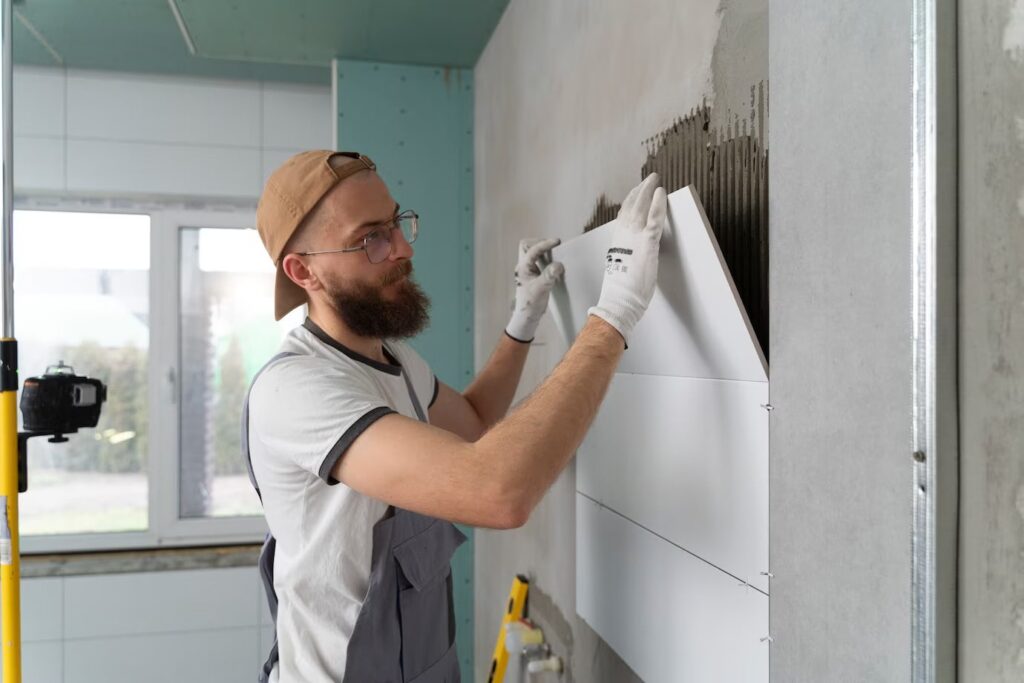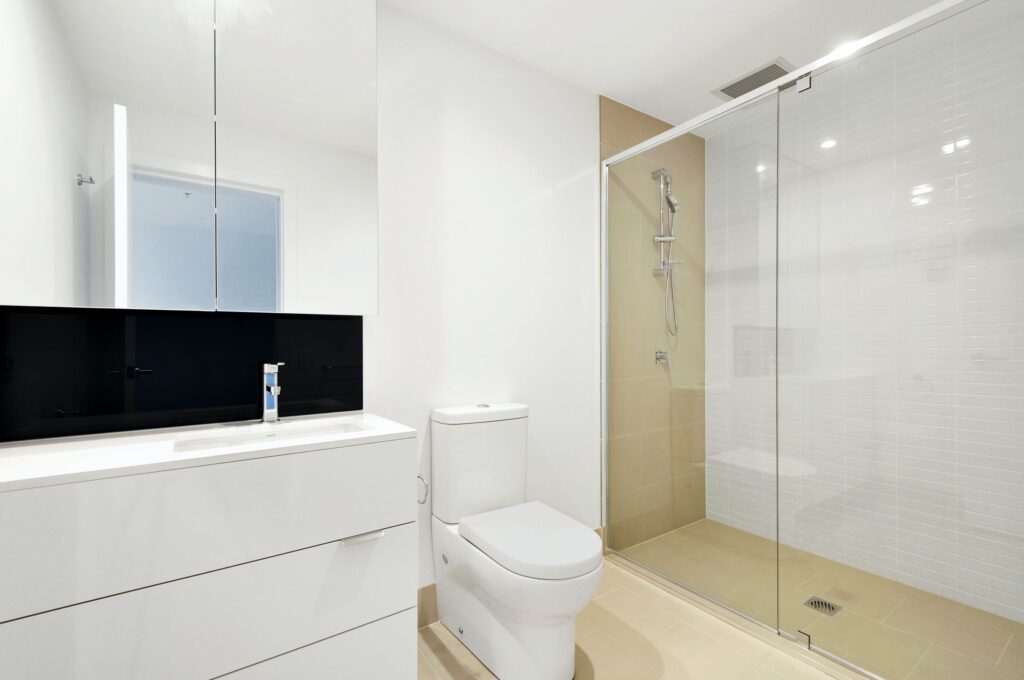
Cost Breakdown: How Much Does Tub Replacement Cost?
Are you tired of taking a bath in a cramped and outdated bathtub? Then it’s time to consider a bathroom remodel in Charlotte, NC, that involves replacing your tub with a spacious and modern shower. Tub-to-shower conversions are a popular home renovation project that not only improves the functionality of your bathroom but also adds value to your home. However, before you dive into a tub-to-shower conversion project, it’s essential to know the cost breakdown to avoid any unpleasant surprises.
In this blog, we’ll explore the cost breakdown of replacing a tub with a shower in Charlotte, NC, and give you tips on how to save money.
Tub-to-Shower Conversion Cost
PRICE RANGE: $1,500 to $20,000
The cost of a tub-to-shower conversion project depends on several factors, such as the size of your bathroom, the type of shower system you want, and the materials used. Here are some cost estimates for different types of conversions:
- Basic Conversion involves removing the old bathtub and installing a prefabricated shower base or pan, new shower fixtures, and a shower curtain or glass door. The cost of this conversion ranges from $1,500 to $3,000.
- Custom Conversion: This involves more extensive work, such as building a new shower enclosure with custom tiles or wall surrounds, installing new plumbing and electrical systems, and adding extra features such as a bench or shelves. This conversion costs from $5,000 to $10,000 or more, depending on the level of customization and the materials used.
- Luxury Conversion: involves installing high-end fixtures, such as a rainfall showerhead or a steam shower, and using premium materials, such as marble or granite tiles. This conversion can range from $10,000 to $20,000 or more.
Factors That Affect the Installation Costs
- Size of Your Bathroom: A larger bathroom may require more materials and labor, costing more. Your bathroom location can also affect the cost, especially if it requires additional work, such as moving plumbing or electrical fixtures.
- Type of Shower System You Want: Several shower systems, such as prefabricated shower units, custom-built showers, and luxury shower systems. The type of shower system you choose can significantly affect the overall cost of your project. Prefabricated shower units are the most affordable option, while custom-built and luxury shower systems can be more expensive.
- Materials Used: Basic materials, such as acrylic or fiberglass, are generally more affordable than high-end materials, such as marble or granite. However, the materials’ quality can also affect the cost, as higher-quality materials are more expensive.
- Labor Costs: Labor costs for a tub-to-shower conversion project can also vary depending on the experience and expertise of the contractor. The project’s complexity can also impact labor costs, as more complex projects may require more time and labor.
DIY vs. Professional Installation Costs
While you can save money by doing this bathroom remodel in Charlotte, NC, yourself, it’s crucial to consider the pros and cons. DIY installation costs depend on the level of complexity of the project, and you may have to rent or buy tools and equipment. On the other hand, professional installation costs can be higher, but you can expect high-quality work and a warranty.
Cost Breakdown
PRICE RANGE: $400 to $3,000
Demolition and Removal of Existing Tub
The first step of a tub-to-shower conversion project is to remove the old bathtub, which involves demolition and disposal costs. The average cost of demolition and removal ranges from $400 to $800, depending on the size of the bathtub and the accessibility of the bathroom.
Installation of Shower Base or Pan
The next step is to install a shower base or pan, which forms the foundation of your new shower. Prefabricated shower bases are the most affordable option, ranging from $100 to $300, while custom shower pans can cost up to $1,000. Labor costs for installing a shower base or pan range from $300 to $800.

Wall Surround or Tile Installation
The wall surrounds or tiles you choose for your shower can significantly affect the overall cost of your project. The wall surrounds made of acrylic, or fiberglass, is the most affordable, ranging from $300 to $1,000, while custom tile installations can cost up to $5,000 or more. Labor costs for wall surround or tile installation range from $1,000 to $3,000.
Plumbing and Electrical Modifications
Converting a bathtub to a shower requires some plumbing and electrical modifications. Plumbing modifications include installing new pipes and fixtures, costing between $500 and $1,500. Electrical modifications include adding or relocating lighting fixtures, which can cost between $100 and $300.
Shower Fixtures and Accessories
The cost of shower fixtures and accessories varies depending on the type and quality of your chosen products. Basic shower fixtures, such as showerheads and handles, can cost between $100 and $300, while luxury shower fixtures, such as a rainfall showerhead or a digital shower system, can cost up to $2,000 or more. Accessories such as shelves and benches can cost between $100 and $500.
Labor Costs
Labor costs for a tub-to-shower conversion project vary depending on the complexity level and the contractor’s experience. The average labor costs range from $2,000 to $5,000, depending on the size of the bathroom and the scope of work.
Tips for Reducing the Cost of a Tub-to-Shower Conversion
Plan
Before starting your bathroom remodel in Charlotte, NC, it is essential to plan ahead and budget accordingly. This involves considering all the costs involved in the project, such as materials, labor, and any unforeseen expenses. Planning helps avoid additional costs and stick to the planned budget. It’s also essential to have a contingency fund for unexpected expenses.
Compare Prices
It’s always a good idea to compare prices from different contractors and suppliers to get the best deals for materials and labor. Shopping around for the best prices can reduce the cost of your bathroom remodel in Charlotte, NC. However, it’s essential to consider the quality of the materials and the contractor’s experience when comparing prices.

Use Prefabricated Shower Components
Prefabricated shower components are pre-manufactured and can be easily installed. They are cost-effective and can save on labor costs. However, they may have limited design options, and customization may not be possible.
Choose Affordable but Durable Materials
Choosing affordable materials such as porcelain or ceramic tiles can significantly reduce the cost of your bathroom remodel in Charlotte, NC, without compromising quality. These materials are durable, easy to clean and come in various designs and colors. Choosing standard sizes for tiles and fixtures can also help reduce costs.
DIY, if Skilled and Experienced
Doing some of the work yourself, such as demolition and cleanup, can save labor costs. However, it’s essential to be realistic about your skills and experience and avoid attempting complex tasks that could lead to costly mistakes.
Avoid Changing Plumbing and Electrical Systems if Possible
Making changes to the existing plumbing and electrical systems can increase the cost of your bathroom remodel in Charlotte, NC. Avoiding these changes can help keep the cost down. If changes are necessary, it’s essential to consult with a licensed professional to ensure that they are done correctly and safely.
Conclusion
In conclusion, a tub-to-shower conversion project can significantly improve the functionality and value of your bathroom. However, it’s crucial to consider the cost breakdown before embarking on the project. The cost of a tub-to-shower conversion project in Charlotte, NC, varies depending on the level of customization and the materials used.
By following the tips we’ve provided, you can reduce the cost of your project without compromising on quality. If you’re looking for a reliable and experienced contractor for your bathroom remodel project in Charlotte, NC, consider Shower Remodel Experts Charlotte.
